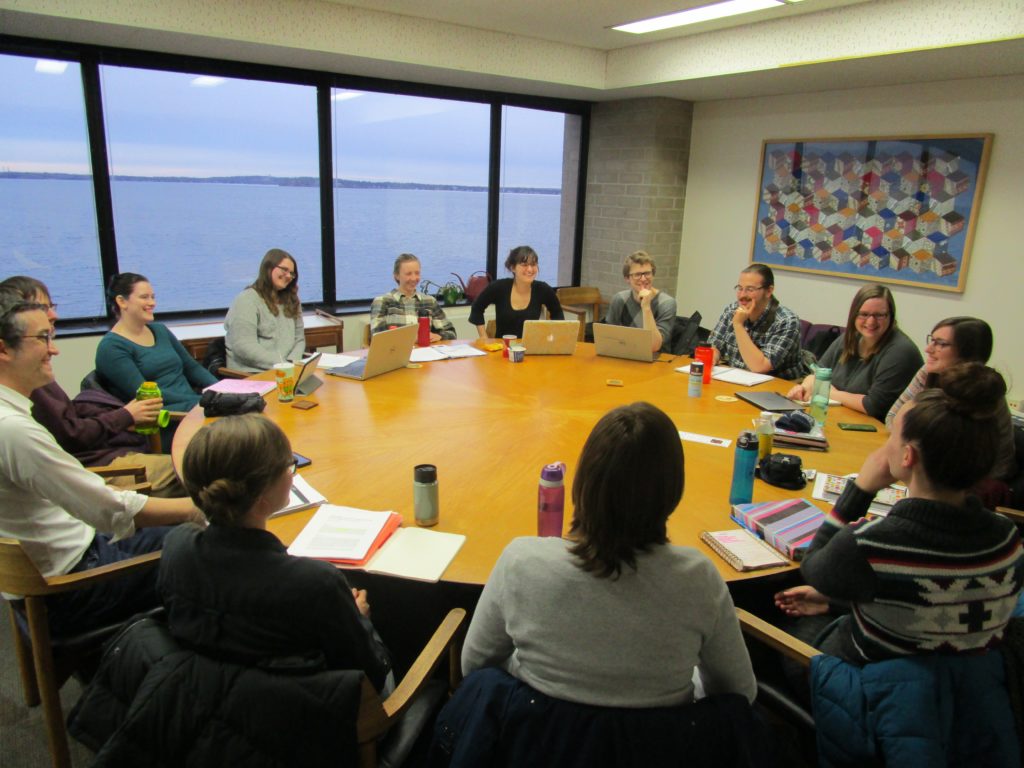 The first TLAM class in the 2017 Spring semester opened with all of us gathered in a circle and sharing a bit of our personal stories. Most classes have some sort of introductory activity where people can quickly become acquainted, but the amount of time and attention Omar, our class professor and guide, provided to this initial process made it feel unique and important. We individually considered five questions, wrote down answers, then shared our stories with each other.
The first TLAM class in the 2017 Spring semester opened with all of us gathered in a circle and sharing a bit of our personal stories. Most classes have some sort of introductory activity where people can quickly become acquainted, but the amount of time and attention Omar, our class professor and guide, provided to this initial process made it feel unique and important. We individually considered five questions, wrote down answers, then shared our stories with each other.
We also heard from experienced TLAM members who visited and told of their involvement with the group and with the Wisconsin Indian communities. Omar then reviewed the history on how the class began with a slide show which added visuals and dimension to the TLAM history. He showed us the TLAM project website and encouraged us to get to know the history of the class in more detail. It is powerful to see the ability to create such a positive class within SLIS from scratch, and for it to grow to what it is today. I feel lucky to be included in the program and blessed to have such the leadership and dedication that has made this class so successful.
Omar explored with us the idea of long term relationships and questioned “How do we become good partners?” He reviewed how within indigenous pedagogy, learning should benefit the community and he explained how this class is now considered a Service Learning class, the only one offered at the I-School. According to the UW-Madison Service Learning webpage, “Service Learning courses are just like any other class you take on campus for credit, but they also feature a volunteer or community-engagement component.” To find out more about the value and unique experience of service-learning at UW-Madison, click here. The recognition of the TLAM class as a service-learning project creates an opportunity to engage with the world, a responsibility to provide tangible benefits, and the ability to maintain lasting connections. It creates a circle of value and understanding between our class and the community.
-Lisa Solko
